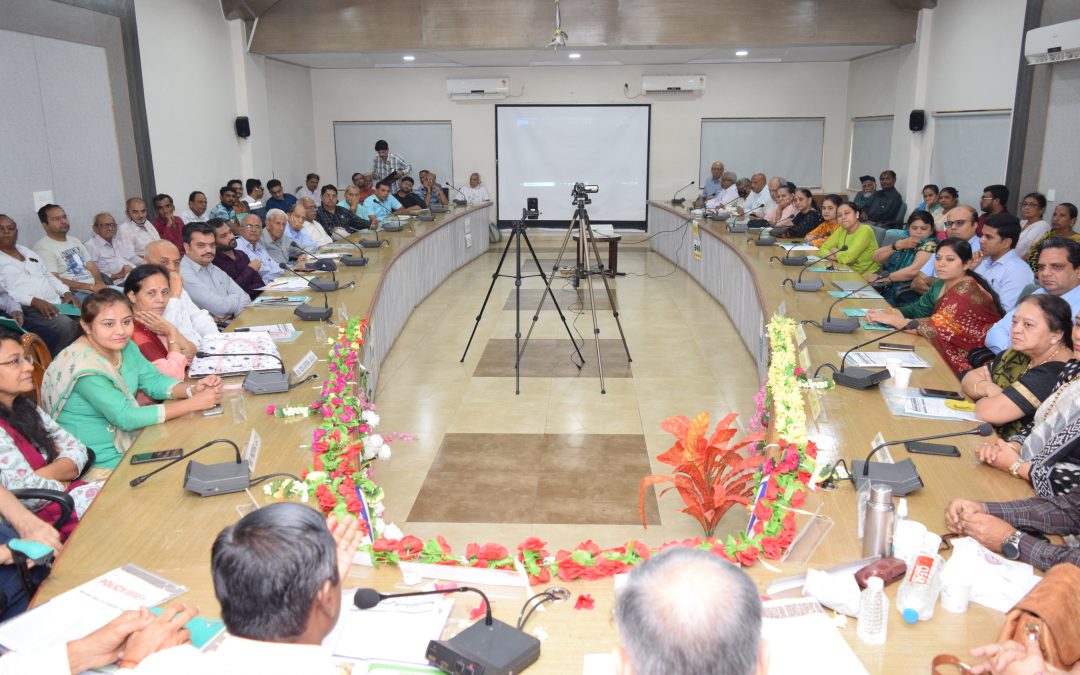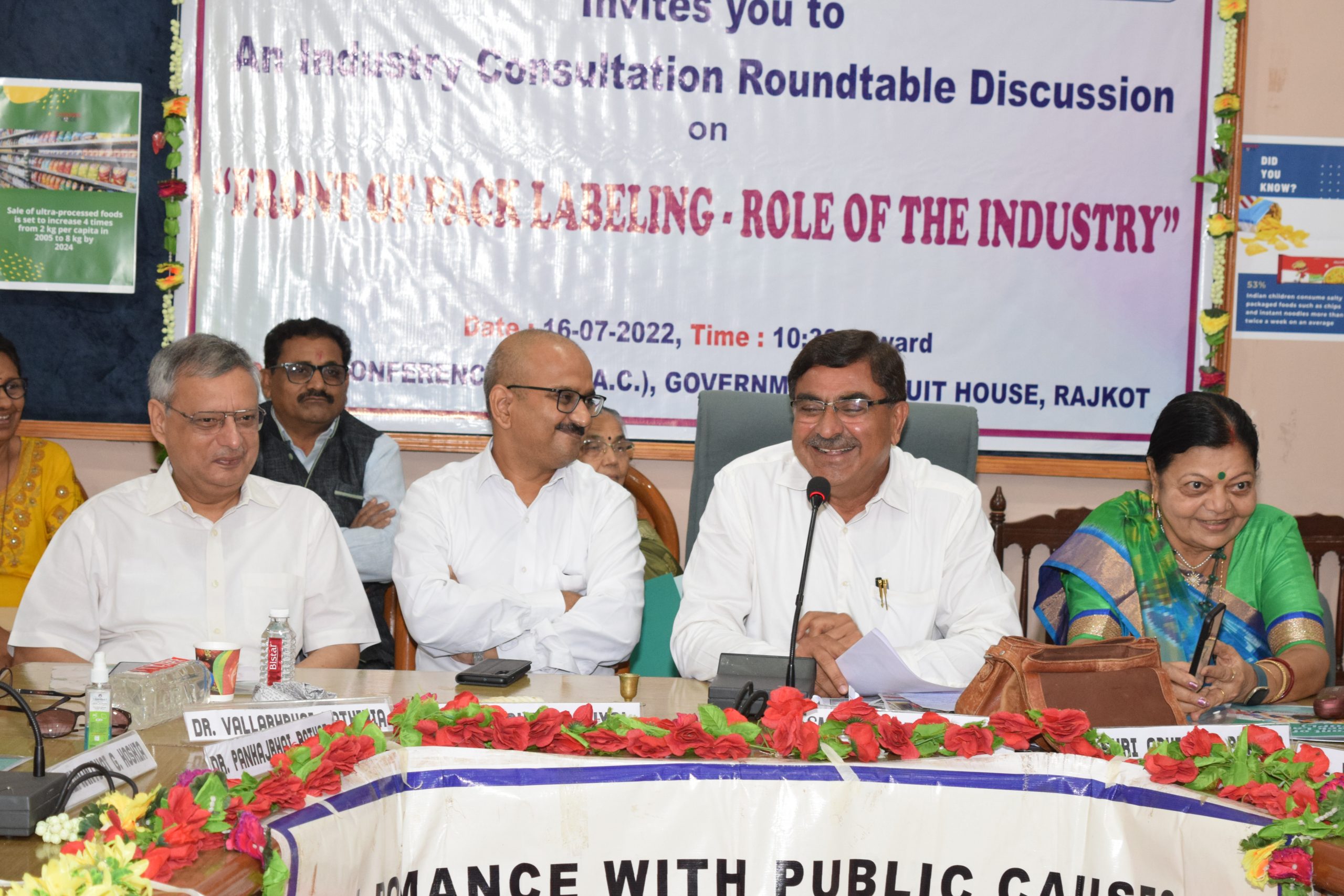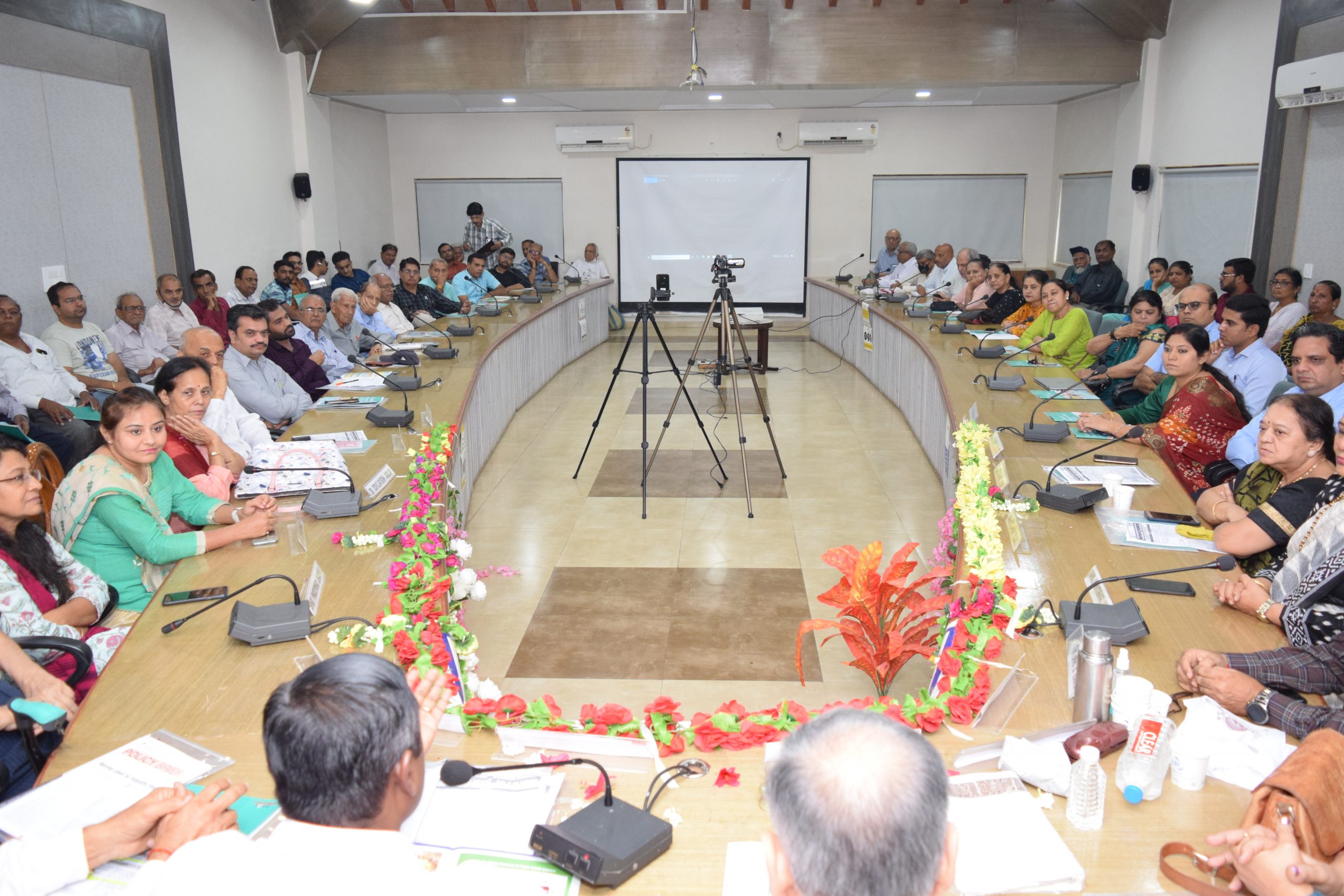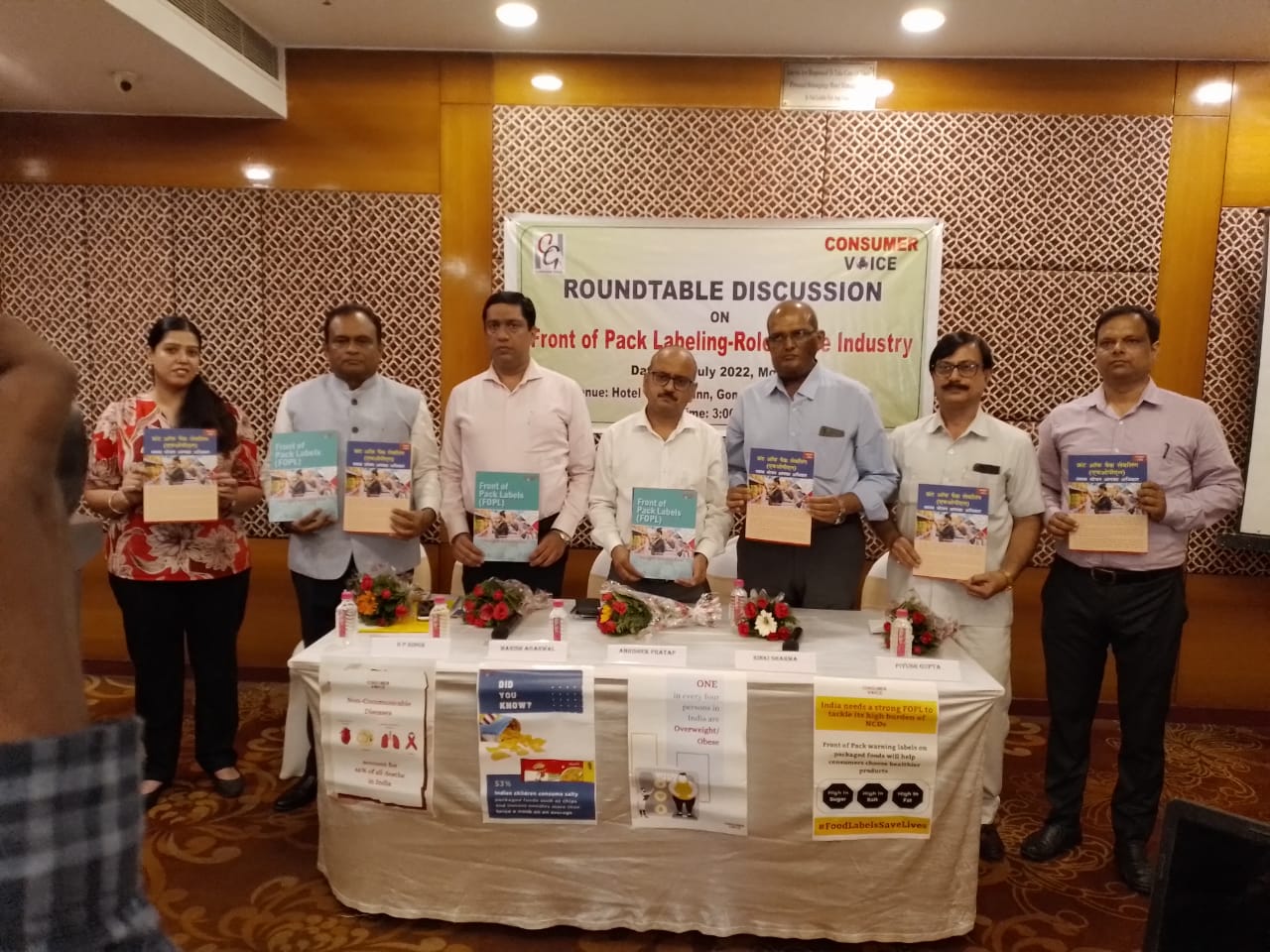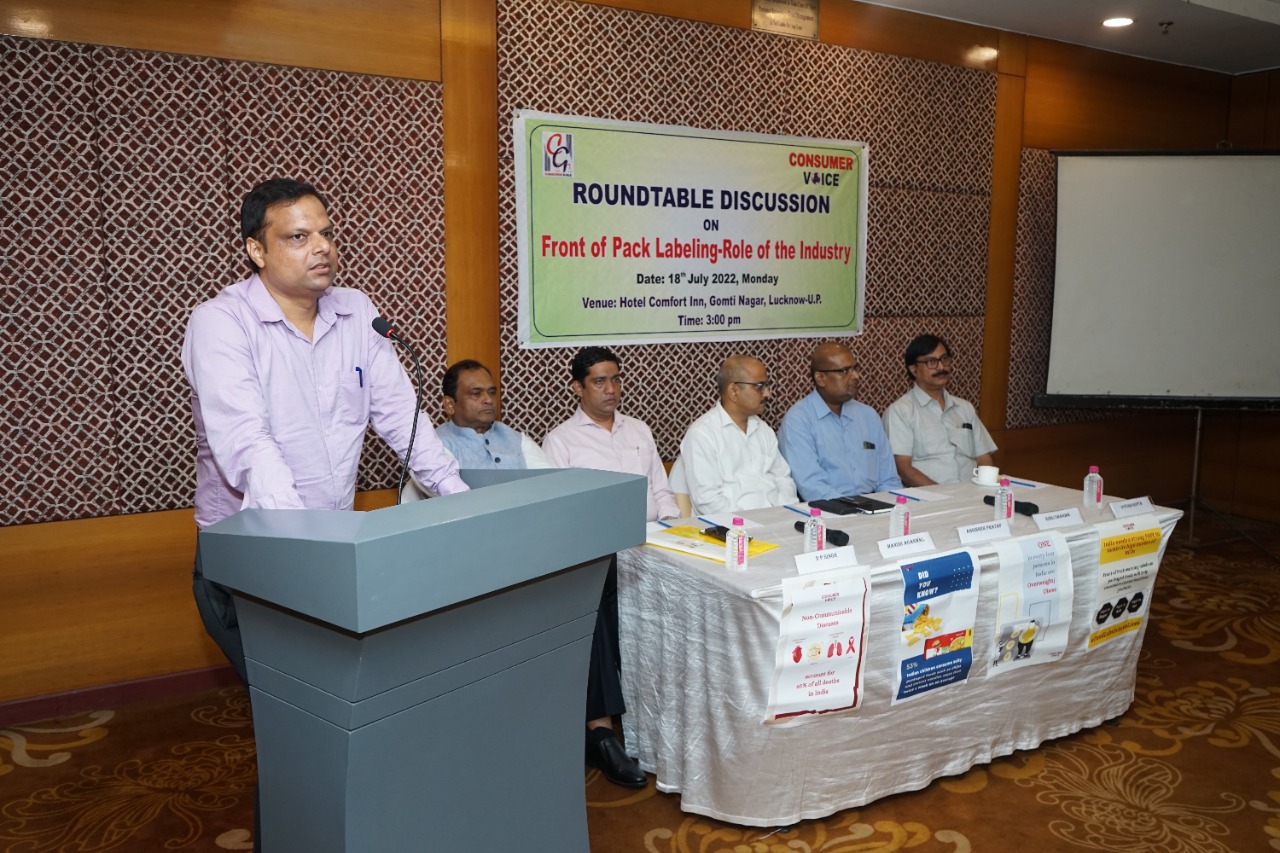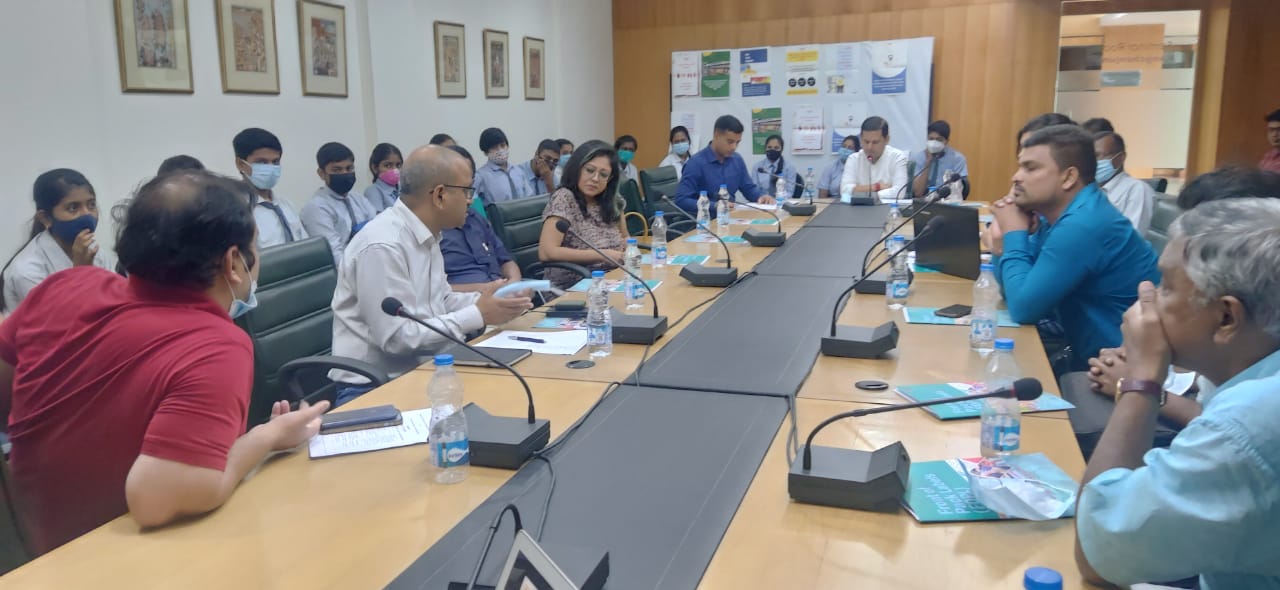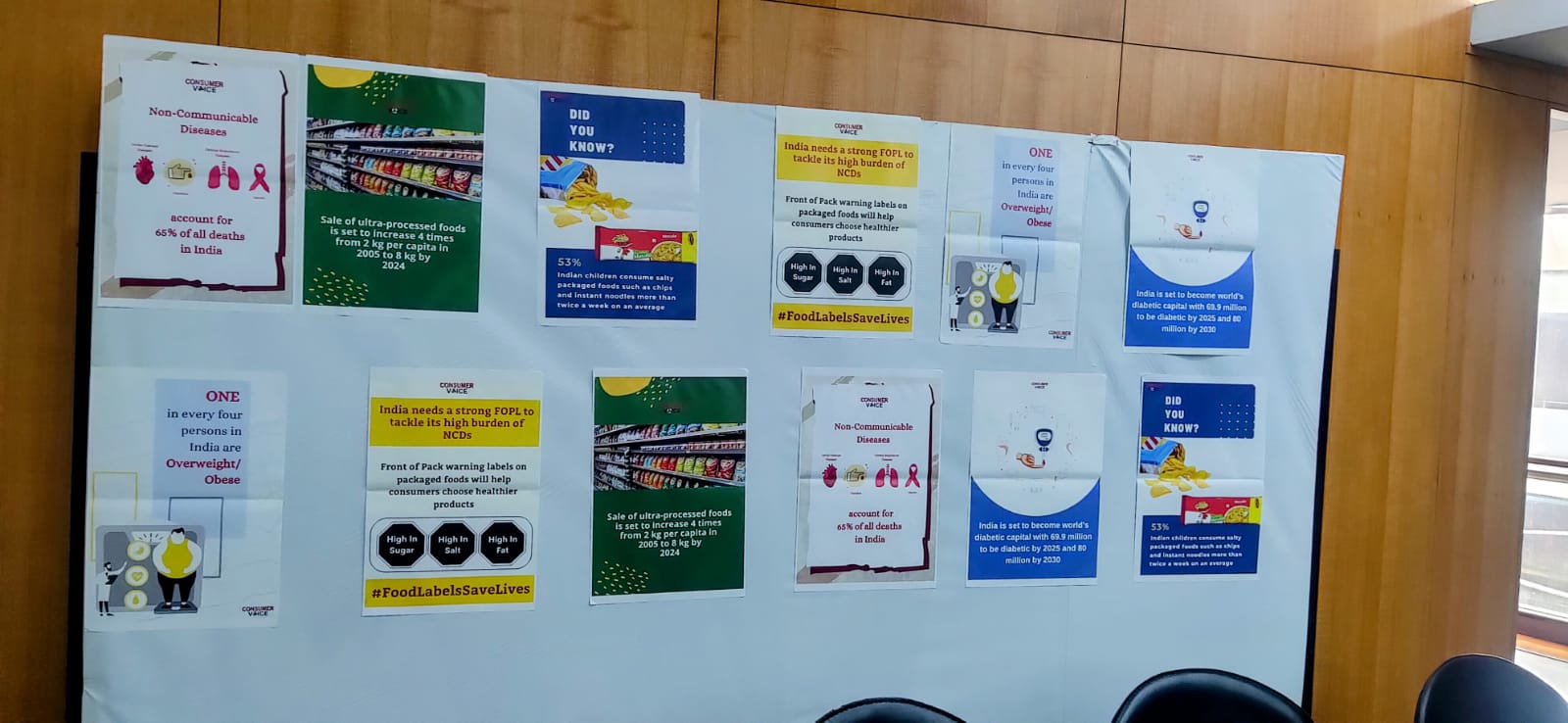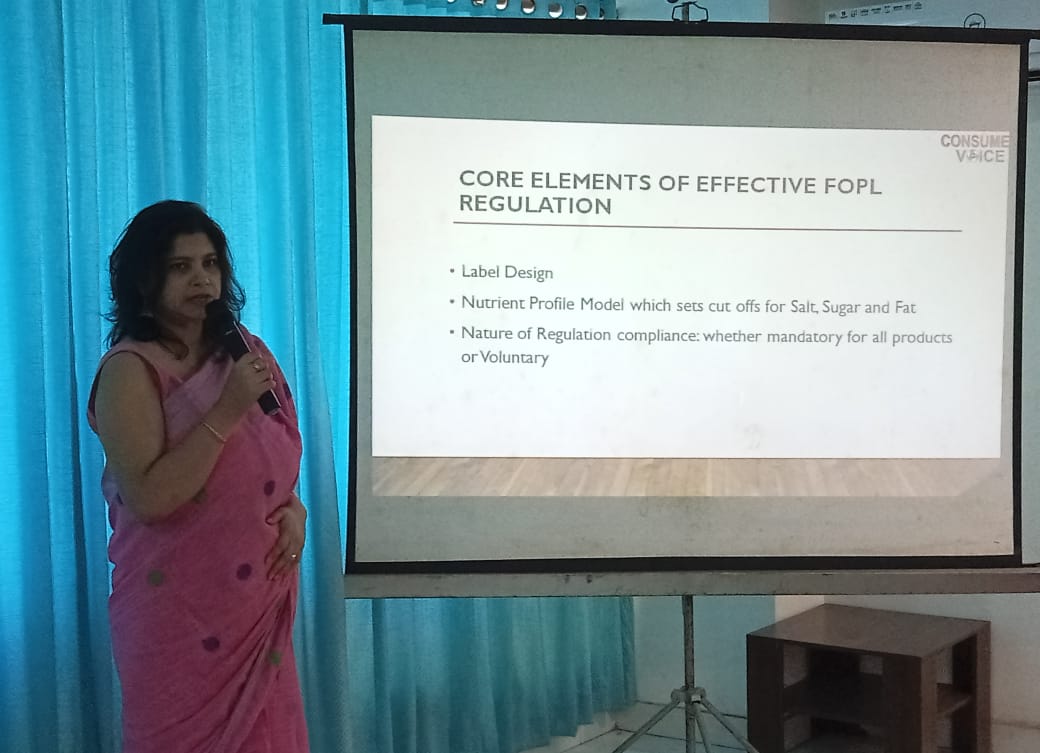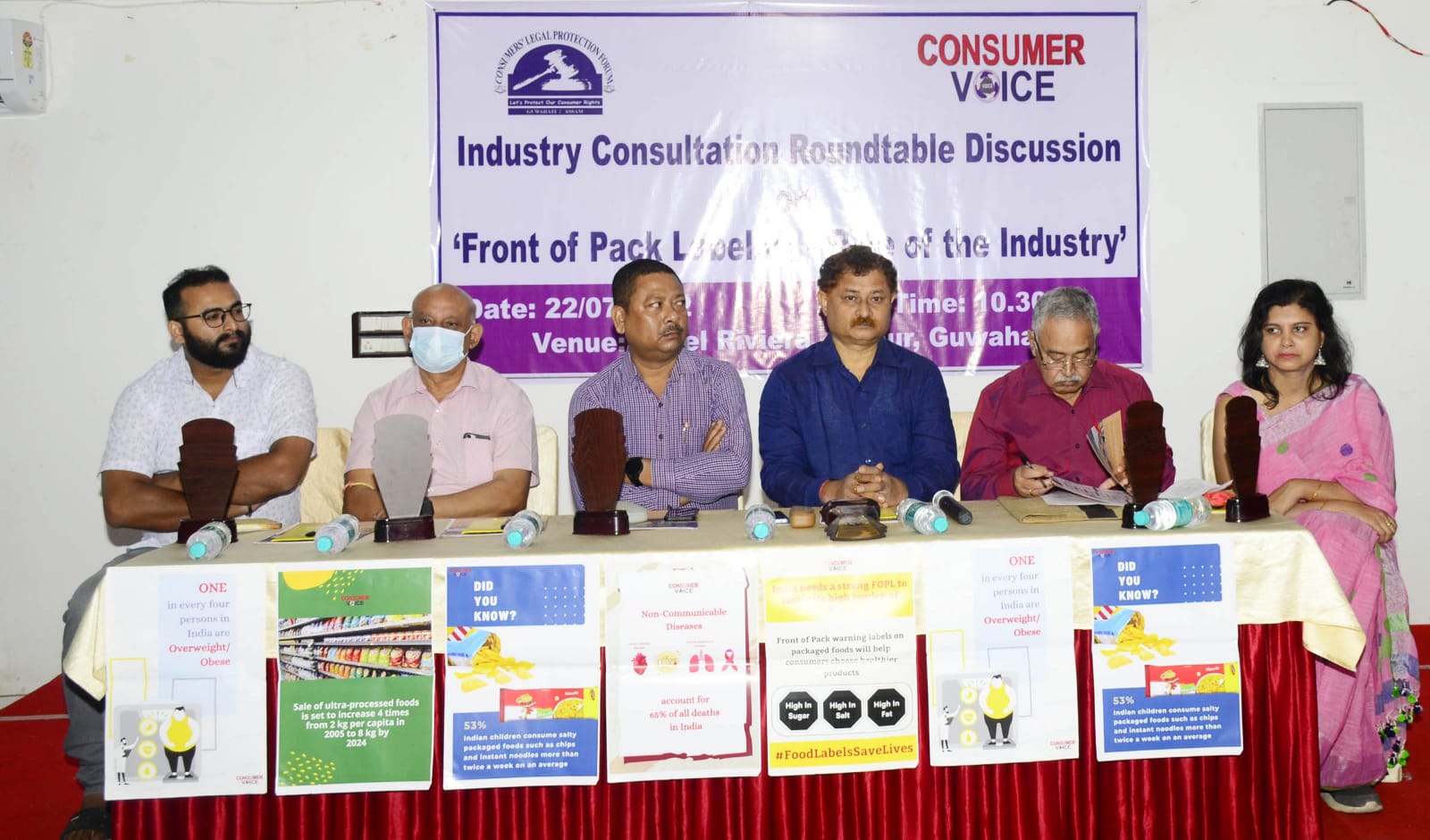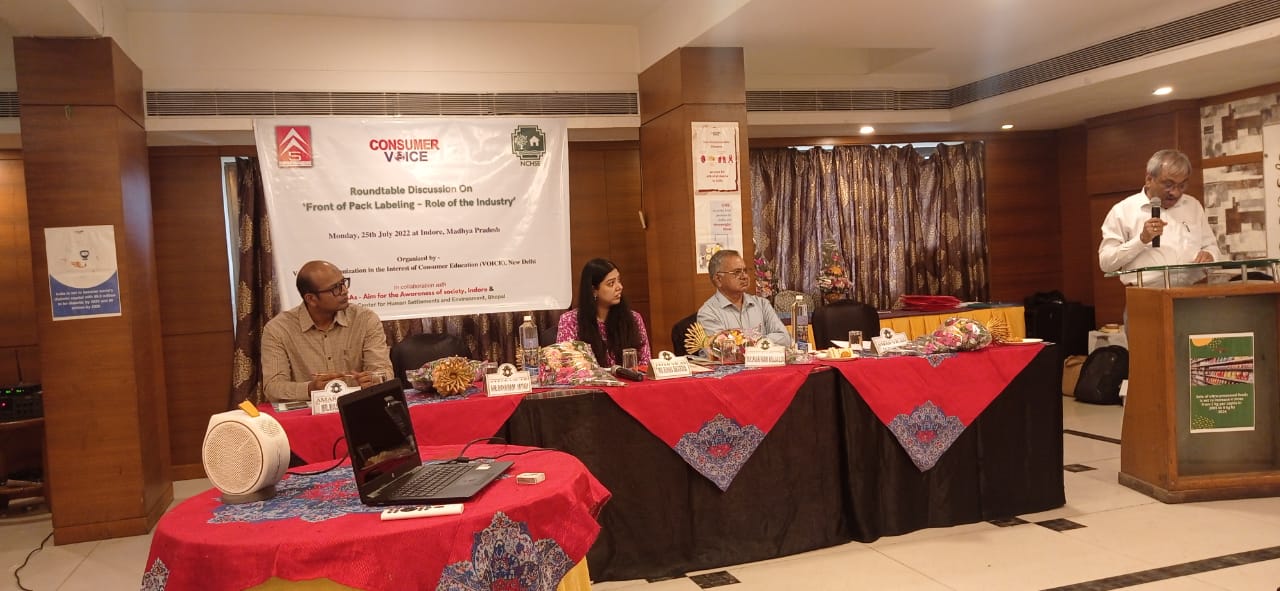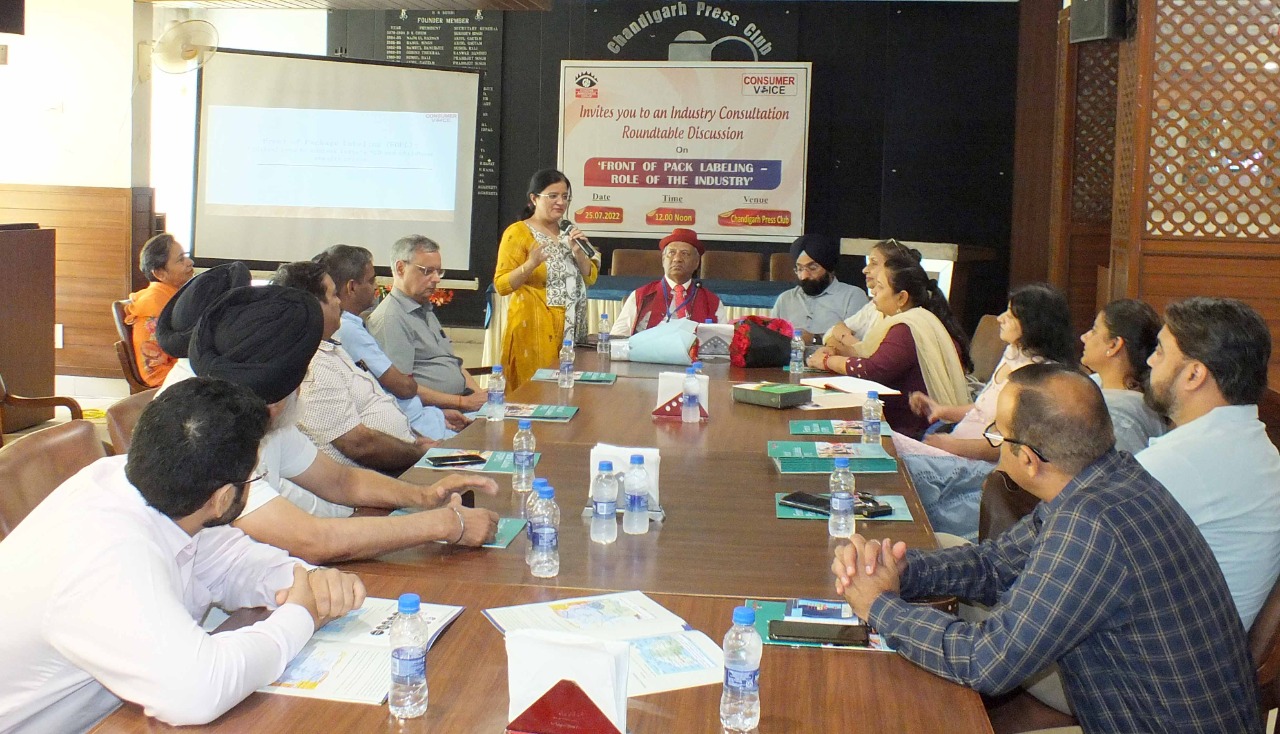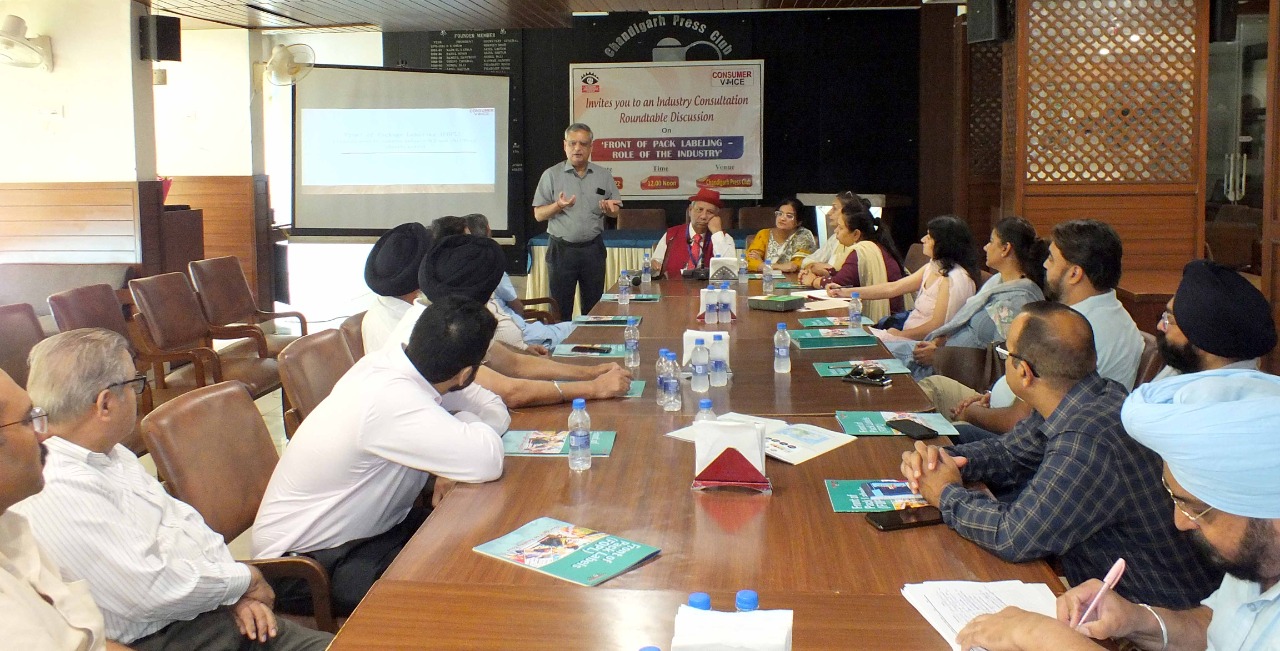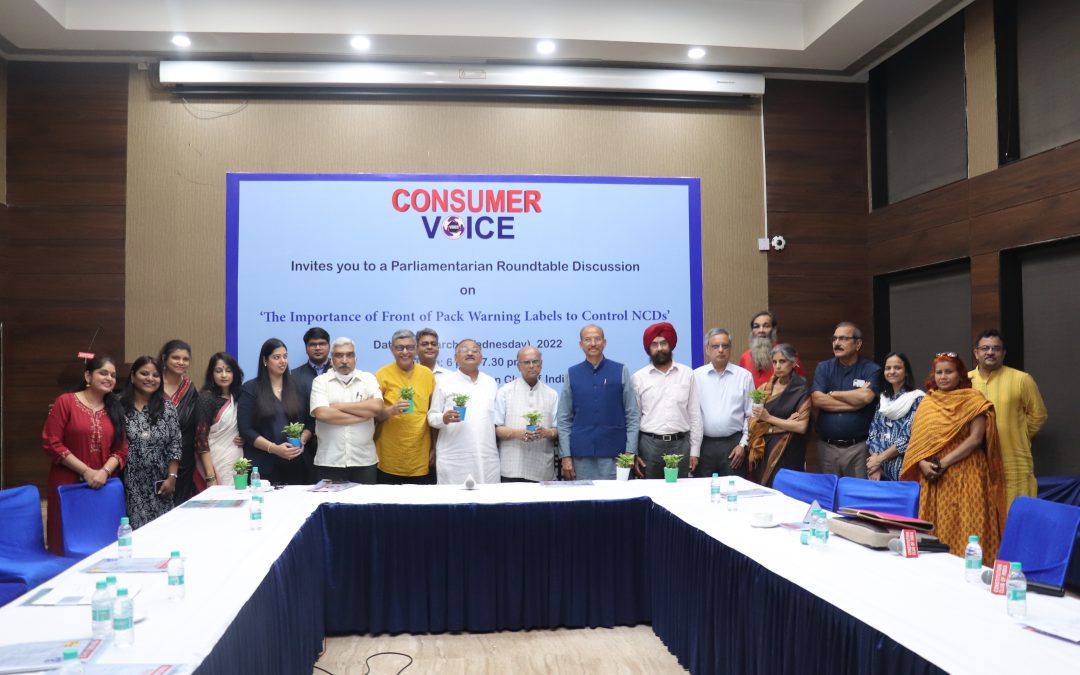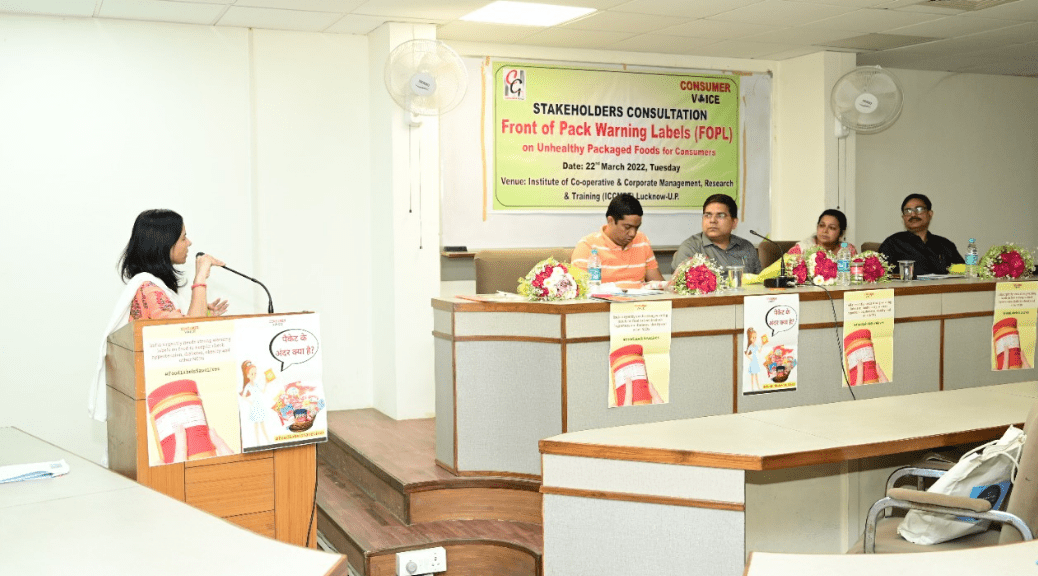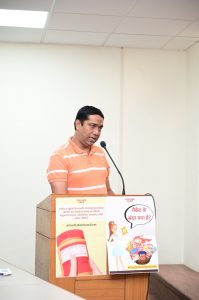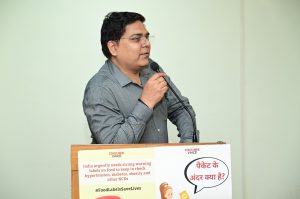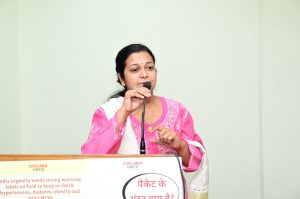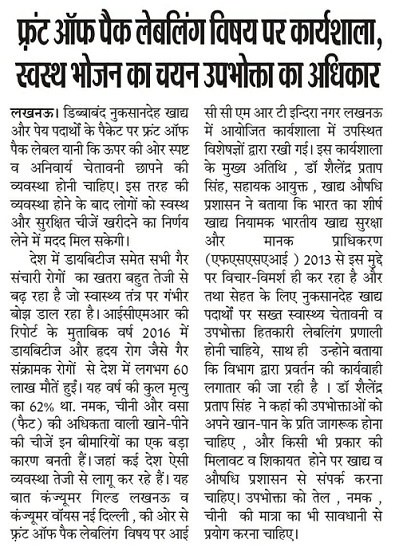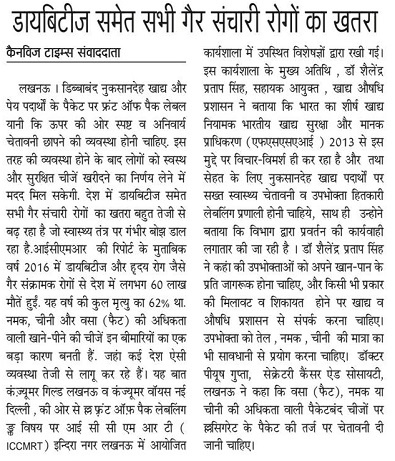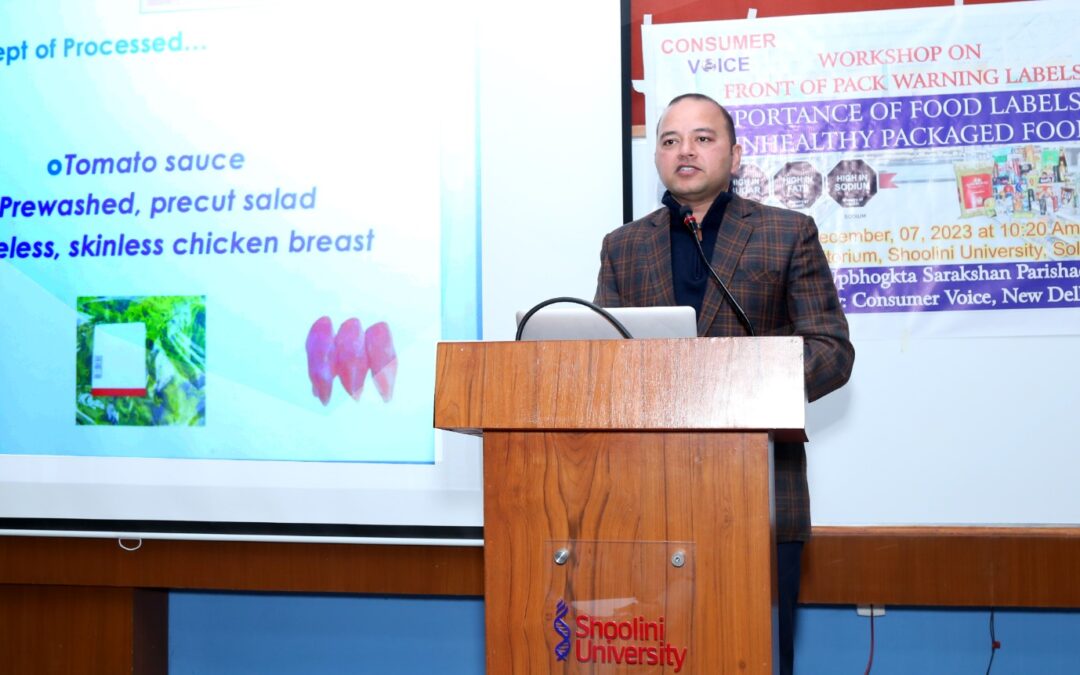
Youth Sensitisation on Front of Pack Labels
Youth Sensitisation on Front of Pack Labels
Youth sensitisation workshop on Harmful effects of Packaged foods and Safeguarding health through Front of Pack Labels in :
Youth Sensitisation Program in Solan, Himachal Pradesh
On December 7th, 2023, Consumer VOICE in association with Himachal Upbhogkta Sanrakshan Parishad organised an youth sensitisation program in Shoolini University. The program which was organised at RTA auditorium in Shollini University was attended by more than 250 students from various disciplines. The session began with a welcome address by the Chairman of Himachal Upbhogkta Sanrakshan Parishad, Shri Joginder Kanwar. He introduced the theme of the workshop and welcomed all the guests. Prof P K Khosla, Chancellor of Shoolini University set the tone of the session by giving examples of how important it is to eat the right food.
Ms Nilanjana Bose, Project Lead, Food and Health, Consumer VOICE then shared her knowledge with the young participants on Front of Pack Labels. With the help of a power point presentation, she spoke about the importance of Front of Pack Lables. She also elaborated on the different types of FOPL designs and the best practices used world-wide. The presentation also highlighted FSSAI draft notification of introducing Front of Pack lables on packaged foods but with star ratings. She highlighted the difference between star ratings and warning labels. The session also saw some interesting presentations by Prof Dr Rohit Goyal and Asst. Professor Srimati Shrishti Mathur of Shoolini University. IEC materials and certificates were distributed to all the students present in the workshop.
Front of Pack Labels – What and Why – Youth awareness in Dr B R Ambedkar University
On November, 30th, 2023, an youth awareness program was organized by Consumer VOICE on what and importance of Front of Pack Labels at Dr B R Ambedkar University, Karampura campus. The program started off with a welcome note by Dr Samik Chowdhury, Associate Professor, School of Global Affairs who spoke about the importance of health and right nutrition among the young population of India. While non-communicable diseases tend to manifest in adulthood, many have their origins in behaviours adopted during childhood and young adults. Unhealthy diets rich in salt, sugar and fats and lack of physical exercises increases the risk of NCDs among young adults. It is important to address non-communicable diseases among the youth as it directly affects the nutrition, education and mental well-being of an individual. Today’s youth who are already stressed with work, career and future, unhealthy eating habits only add to the existing problems.
The session was then continued by Mrs Nilanjana Bose, Project Lead, Food and Health, Consumer VOICE. With the help of a presentation, she introduced the relatively new subject of Front of Pack Lables to the students. She spoke about the different types of FOPL and why Warning Lables are the best. By citing examples of Latin American countries that have implemented Front of Pack Warning Lables she also highlighted Indian studies that showed that more people preferred warning labels on unhealthy packaged foods over other designs. Ms Ekta Purohit, Communications Manager, Consumer VOICE highlighted the importance of effective communication for promoting health and nutrition through various social media channels.
The program was attended by more than 50 students from across departments of the University. IEC materials and certificates were also issued by Consumer VOICE.
Youth Sensitisation Program in Lucknow, Uttar Pradesh
A similar youth sensitisation program on Front of Pack Lables was done in Bhonwal Convent School , Bijnaur Lucknow on 28 November with support from Consumer Guild, Lucknow where more than 250 students participated. Abhishek Srivasata of Consumer Guild highlighted the harmful effects of unhealthy packaged foods and how one should avoid foods rich in fats, salt and sugar. He also discussed about the various types of Front of Pack Lables and why Warning Lables are the best. While interacting with the students he elaborated on the difference between Warning Lables and other label designs and how it will help us identify unhealthy foods.
Youth Sensitisation Program in Guwahati, Assam
In Assam, young college students from the School of Pharmaceutical Sciences, USTM attended a session on Front of Pack Lables (FOPL) organised by Consumers’ Legal Protection Forum, Assam with support from Consumer VOICE on November 17th, 2023. After introducing the subject and talking about the harmful effects of packaged foods by their Head of the Department, the students were given IEC materials on FOPL. Ajoy Hazarika of CLPF Assam, spoke about FSSAI draft regulation on FOPL and how star ratings are not good. He also highlighted the best practises used mostly in Latin American countries like Chile and Mexico where after having Front of Pack Warning Lables on packaged foods, consumption of unhealthy foods has come down reasonably.
Youth sensitision on Front of Pack Labels in Rajkot, Gujarat
On December 4th, 2023, Rajkot Saher Jilla Grahak Suraksha Mandal along with the support of Consumer voice, went across three educational institutions to generate awareness on unhealthy packaged foods and Front of Pack Lables. Ramaben Mavani, President of Rajkot Saher Jilla Grahak Suraksha Mandal set the tone of the session by talking about the harmful effects of packaged foods. She highlighted the fact that consumption of unhealthy packaged foods are one of the main reasons for the rise in NCDs in India. Ramajibai Mavani, Founder President of Rajkot Saher Jilla Grahak Suraksha Mandal spoke about the importance of having healthy foods and the role of nutrition in our daily lives. Ekta Purohit, Communications Manager, Consumer VOICE shared a presentation on Front of Pack Labels. She highlighted the different types of label designs and also why should one avoid foods rich in fats, salt and sugar. She also shared the latest draft regulation of FSSAI on FOPL and why one should adopt warning labels instead of star ratings as recommended by FSSAI. The session was organised in 3 different institutions including Murlidhar B.Ed College, Mirambika College and Panchshil College, Rajkot. IEC materials were distributed among the students as well.



































